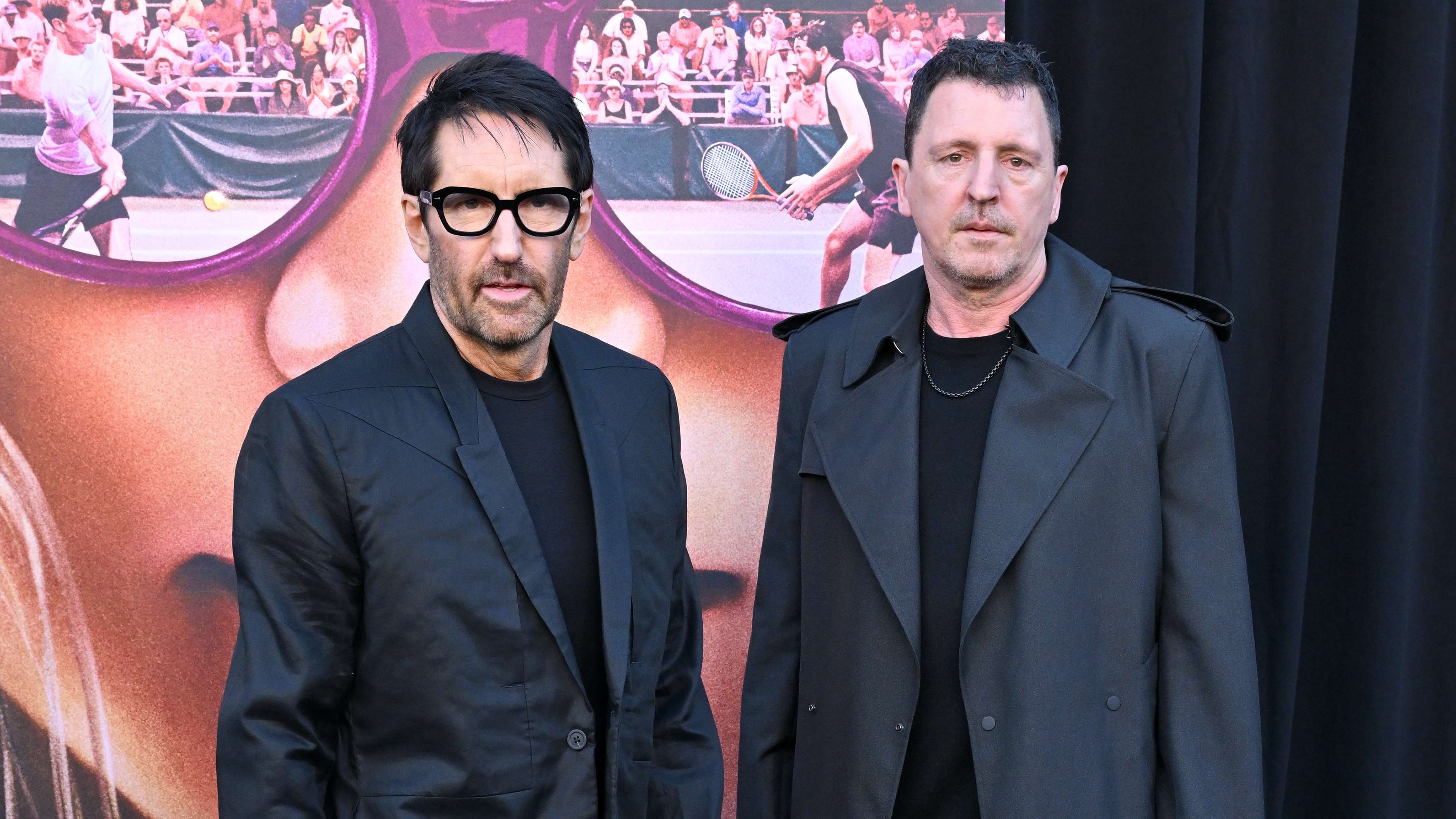
The movie soundtrack work of ex-Nine Inch Nailers Trent Reznor and Atticus Ross is, of course, by now highly regarded and a major influence on the scene and sound of today's movies. What might not be known is just what drove them to turn their back on their band and music-making, and just how unlikely it is that they will ever return.
In an interview primarily about the duo’s ongoing movie soundtrack work – in particular their scores for director David Fincher on movies such as The Social Network, The Girl with the Dragon Tattoo, Gone Girl and Mank – Reznor sheds light on why he now values his soundtrack work far more than his old single/album/tour musical path with Nine Inch Nails.
“What we’re looking for [from film] is the collaborative experience with interesting people,” Reznor explains to Indie Wire. “We haven’t gotten that from the music world necessarily.”
Addressing a point made by his interviewer, Reznor says: “You mentioned disillusionment with the music world? Yes. The culture of the music world sucks. That’s another conversation, but what technology has done to disrupt the music business in terms of not only how people listen to music but the value they place on it is defeating.
“I’m not saying that as an old man yelling at clouds, but as a music lover who grew up where music was the main thing. Music [now] feels largely relegated to something that happens in the background or while you’re doing something else. That’s a long, bitter story.”
It’s fortunate therefore that the pair have embraced the world of movie soundtracks to fill their creative void. The duo’s most recent work is on Challengers, which sees the team heading back to more familiar electronic dance themes to provide the propulsive thrust of what is essentially a tennis-themed sports movie with a love triangle at its core.
And, after delivering the electronic score for HBO’s mini-series reworking of the graphic novel Watchmen, the pair have now formulated a modus operandi for delivering music to fit fast action.
“If you’re going to have driving music play through a scene, it has to be driving music,” explains Reznor. “It can’t be politely sitting behind explosions and car chases and dialogue. It needs to feel like you’re in a club.
“If it’s not loud enough, it gets marginalized and just doesn’t work at all. We know the problems that come when it’s either the sound effects guys you’re ready to get into a fistfight with in the mixing room or the studio executive that can’t hear the dialogue. [Luca Guadagnino, director of Challengers] was fighting that fight through the process.”
And, despite their contempt for, and desire to move away from the music industry, the new interview does dangle a glimmer of hope for hardcore Nine Inch Nails fans
In 1997 the band released a double VHS cassette (different times) entitled Closure that featured footage from their Self-Destruct and Further Down the Spiral tours, with backstage appearances by David Bowie, Jim Rose Circus, and Marilyn Manson.
Never released in any modern, acceptable, digital format it now sits as a lost relic for fans.
Addressing the issue of a potential re-release Reznor teases: “I’m trying to think what I’m able to say right now. We are doing some things with Interscope again. There’s a renewed interest in making sure the back catalog is being curated and maintained properly. I’ll bring that up as I haven’t been paying close attention to what the status of those things are because this is a relatively new development. But that’s a good thing to mention because I would like to have that in some consumable fashion, whether it be streamable or something.”
When pressed on the fact that a version of Closure was leaked online, Reznor coyly replies: “Oh, I wouldn’t know anything about that…”







